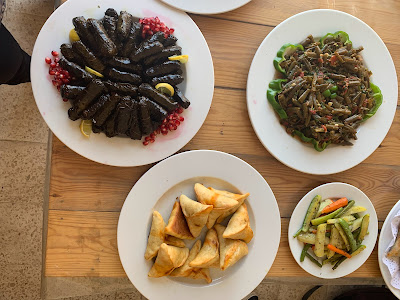Finally getting to posting some highlights from 2023 so far… first up, Palestine 🇵🇸
This spring I had the amazing opportunity to work in the city of Jenin in collaboration with @fragments_theatre and @bondstreettheatre, focusing on mental health, social media, and education. Fragments uses recycled materials from Jenin’s massive trash overflow as part of their architecture and scenes, using these and more figurative narrative “fragments” in commitment to Palestinian storytelling. You can find some of the amazing work done by Fragments Theatre participants on their Instagram page, but here are some behind-the-scenes shots of our work in the West Bank and additional travels, including seeing some old friends!
There are many more wonderful people that I met than are posted here, but here’s a snapshot of some of what was a very full month. Palestine and its resistance to military occupation influenced me and my commitment to socially impactful art both abroad and at home in the US. Brutalities committed to innocent Palestinians every day, and their fight to preserve their identity, parallel struggles in the US closely and help me better understand my identity and role on occupied land here. Working with the incredible actors, educators, and psychologists taught me how to show up under the worst of circumstances and still tell the stories that matter.
Since I left, Jenin Refugee Camp, close to Fragments, has been a focal point of attack by the current right wing Israeli government, including a recent Apache (read, US supplied) helicopter attack and destruction of much of the UN-run camp, and raids are still frequent that affect virtually all Palestinian families. I encourage people to read news sources like @aljazeeraenglish that show alternate stories to the region than is often seen in US media, and to follow organizations like @eye.on.palestine and @jewishvoiceforpeace that advocate for change in US policy toward Israel and Palestine.






















